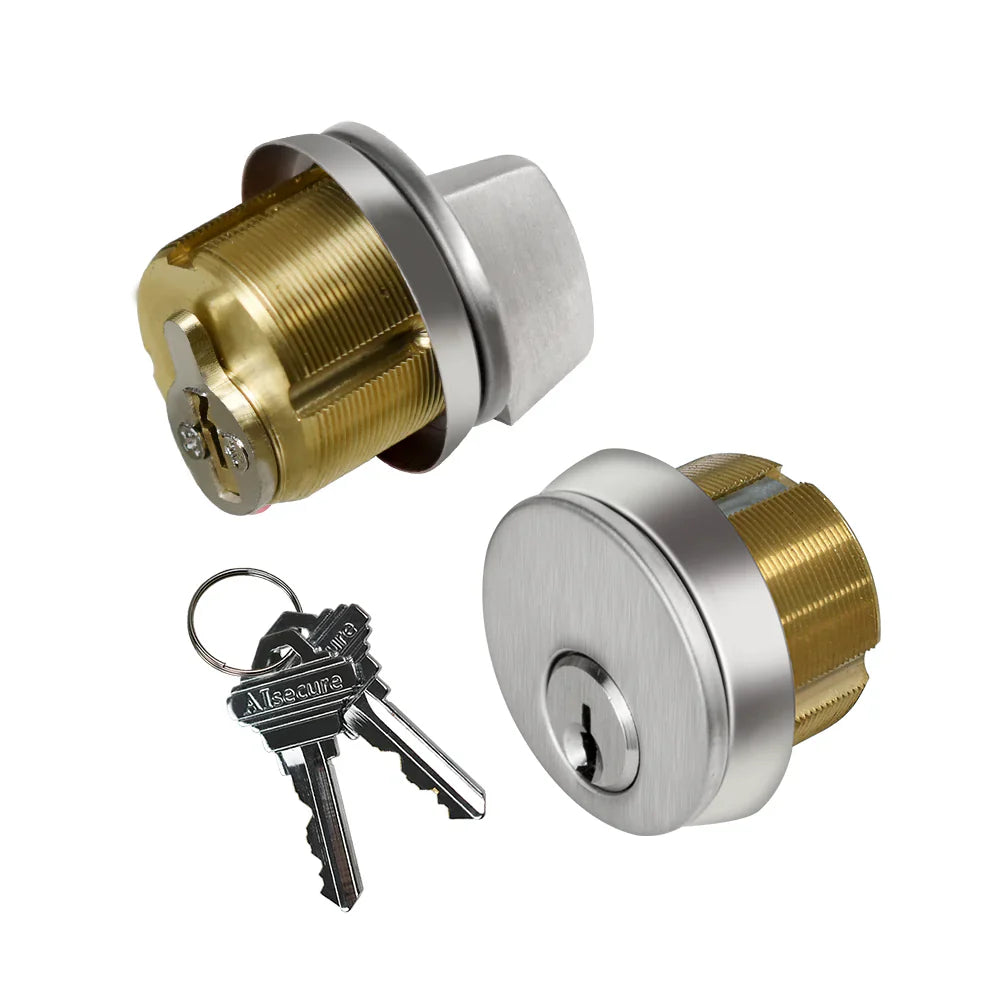
Are Dead Bolts Enough for Commercial Sliding Door Locks?
Share
Security is a top concern for any business owner, especially when it comes to protecting commercial premises after hours. One common question that arises is whether dead bolts alone are sufficient to secure sliding doors in commercial environments. The answer is not as straightforward as it may seem.
Sliding doors are often used in retail stores, office buildings, and other commercial properties because they offer easy access, aesthetic appeal, and space-saving benefits. However, their locking mechanisms are often less robust than those found on traditional swing doors. This makes them more susceptible to break-ins if not properly secured.
Sliding door lock systems are specifically engineered to address the unique vulnerabilities of sliding door structures. Unlike traditional doors, sliding doors move horizontally along a track and can often be lifted out if not secured properly. A specialized lock designed for this type of movement helps prevent these exploits. These locks often include multi-point mechanisms, anti-lift pins, and reinforced latching systems that offer more protection than simple latch-style locks.
Despite their popularity, dead bolts were originally designed for hinged doors. They work by driving a solid bolt into the door frame when engaged, making it extremely difficult to force the door open without a key. Dead bolts are highly effective for resisting brute-force attacks and are commonly used in both residential and commercial applications. However, their effectiveness on sliding doors is somewhat limited by the physical mechanics of sliding motion. A dead bolt may add a layer of resistance, but it can't counteract the common tactics used by intruders to bypass sliding doors, such as prying or lifting the door out of the frame.
When it comes to securing a place of business, it’s important to invest in true commercial door locks rather than relying on standard residential solutions. Commercial-grade locks are built to withstand more frequent use, tampering, and forceful entry attempts. They are often made of heavier materials and undergo more rigorous testing to meet higher safety standards. These locks may include advanced features such as restricted keyways, anti-pick cylinders, and reinforced strike plates that offer superior protection for storefronts, warehouses, and office buildings.
While dead bolts can be part of a comprehensive security system, they should not be the only measure taken to protect commercial sliding doors. A more robust approach would involve a combination of a purpose-built sliding door lock, a properly installed dead bolt, and other reinforcements like security bars, laminated glass, and door sensors. Businesses should also consider access control systems for additional layers of protection, allowing only authorized personnel to operate the doors.
Another important consideration is professional installation. Even the most advanced locking system can fail if it’s not installed correctly. Hiring a certified locksmith or security expert ensures that the locks are aligned properly, the hardware is securely fastened, and there are no weak points that could be exploited. Maintenance is equally critical—locks should be inspected regularly to ensure they are functioning as intended, especially in high-traffic commercial environments.
In summary, dead bolts are a valuable component of a door’s security system, but they are not enough on their own when it comes to protecting commercial sliding doors. The unique structure and function of sliding doors require specialized locks and additional security enhancements. Investing in high-quality commercial locking systems not only protects physical assets but also provides peace of mind for business owners and employees alike.
Ultimately, security is about layers. One lock, no matter how strong, is rarely sufficient to stop a determined intruder. Combining dead bolts with commercial-grade sliding locks and other reinforcements provides a comprehensive defense strategy. With the right mix of technology and planning, business owners can ensure that their premises remain safe, secure, and prepared for any threat.

